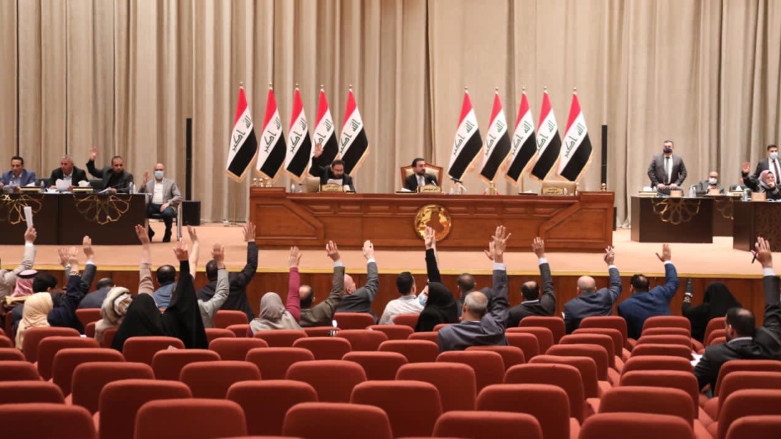Iraq’s parliament passes deficit law, despite Kurdish objections

ERBIL (Kurdistan 24) – The Iraqi parliament on early Thursday passed a budget deficit law with a majority of its members in the absence of representatives from the Kurdistan Region, who boycotted the session over disagreements about a clause that Kurdish lawmakers described as “unfair” for the autonomous region’s share in the federal budget.
The Iraqi government in October sent a fiscal deficit draft law, asking approval for a $35 billion-loan to secure the remaining four months of public pensions for its employees. Previously, the parliament allowed the Iraqi government to borrow $12 billion internally to pay public wages.
The parliament only allowed $10 billion to be borrowed for state pensions.
The disagreements between the Kurdish and Arab lawmakers arose on Article 5 (2) of the bill, related to the securing of the Kurdistan Region’s share in the federal budget.
In August, the Iraqi government and the Kurdistan Regional Government (KRG) agreed on a nearly $270-million monthly payment by Baghdad as a partial restoration of the autonomous region’s share of the budget in return for 250 thousand barrels of oil per day (bpd) from Kurdistan.
Read More: Iraq agrees to send Kurdistan part of its budget: KRG
The parliament’s finance committee amended the section on Thursday, setting a condition for the Kurdistan Region to submit all of its oil and non-oil revenues in order to benefit from its partial share, less than the $780 million the KRG needed to function monthly.
Iraq’s second deputy speaker for the Iraqi parliament described the Iraqi faction’s demand to submit all the revenues without providing the region with a necessary budget as “declaring a war.”
“It is unfair and like declaring a war,” Hadad told Kurdistan 24 during an interview before the parliament passed the bill in the absence of Kurdish parliamentarians.
Iraq’s budget is 90 percent dependent on hydrocarbon sales as its revenues drastically declined due to the global fall of oil prices because of the coronavirus pandemic. The state needs around $7 billion to pay all its necessary expenses, including public wages, according to Iraq’s finance ministry. In September, the country earned $3.16 billion from oil exports, a $4 billion deficit to pay the financial dues.
Iraq’s finance minister, Ali A. Allawi, previously told AP that Iraq’s heavy reliance on oil to pay its civil servants is “unsustainable.”
“I’ve said many times before, the portion of oil revenues devoted to salaries in 2004 was 20 percent, now its 120 percent,” Allawi told AP.
The KRG has not yet commented on the unilateral voting by the Iraqi parliament on the bill as it puts its agreement with the Iraqi government into uncertainty.
Editing by Karzan Sulaivany
